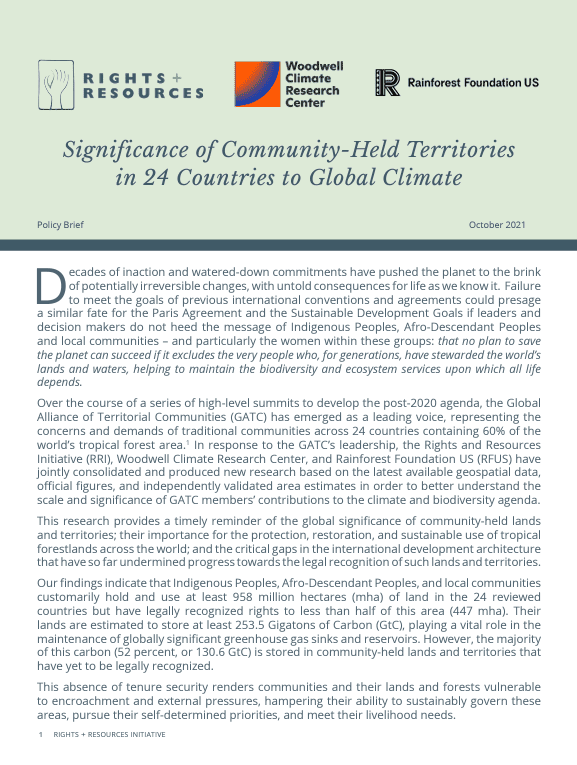Date: November 5, 2021
- Africa
- Asia
- Bolivia
- Brazil
- Cameroon
- Carbon Rights
- Central African Republic
- Climate Change
- Costa Rica
- Democratic Republic of the Congo
- Ecuador
- French Guiana
- Gabon
- Global Call to Action
- Guatemala
- Guyana
- Honduras
- Indigenous Peoples
- Indonesia
- Latin America
- Mexico
- Nicaragua
- Panama
- Peru
- Republic of the Congo
- Rights, Climate and Conservation
- Suriname
- Venezuela
This research provides a timely reminder of the global significance of community-held lands and territories; their importance for the protection, restoration, and sustainable use of tropical forestlands across the world; and the critical gaps in the international development architecture that have so far undermined progress towards the legal recognition of such lands and territories.
Our findings indicate that Indigenous Peoples, Afro-Descendant Peoples, and local communities customarily hold and use at least 958 million hectares (mha) of land in the 24 reviewed countries but have legally recognized rights to less than half of this area (447 mha). Their lands are estimated to store at least 253.5 Gigatons of Carbon (GtC), playing a vital role in the maintenance of globally significant greenhouse gas sinks and reservoirs. However, the majority of this carbon (52 percent, or 130.6 GtC) is stored in community-held lands and territories that have yet to be legally recognized.
https://doi.org/10.53892/YBGF2711

